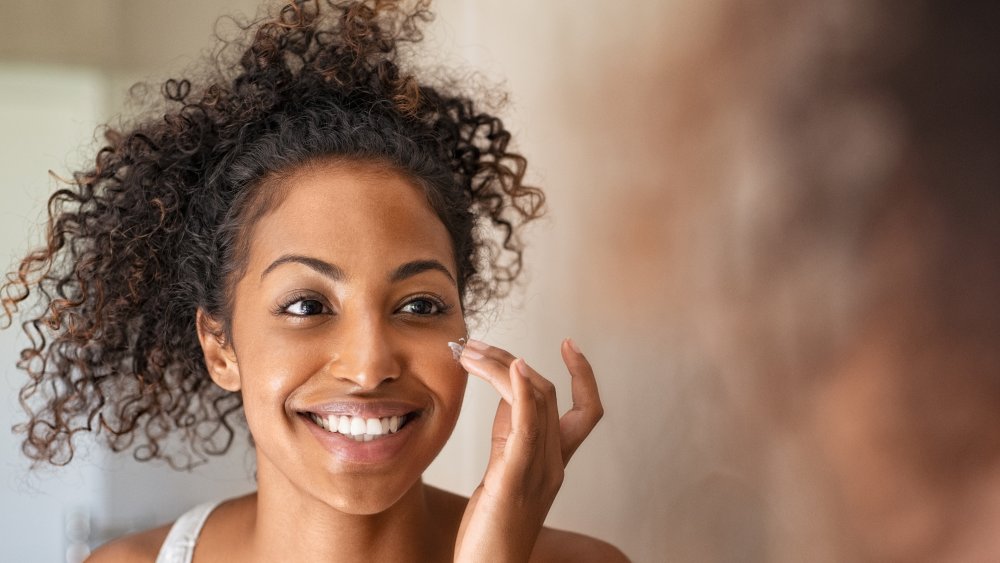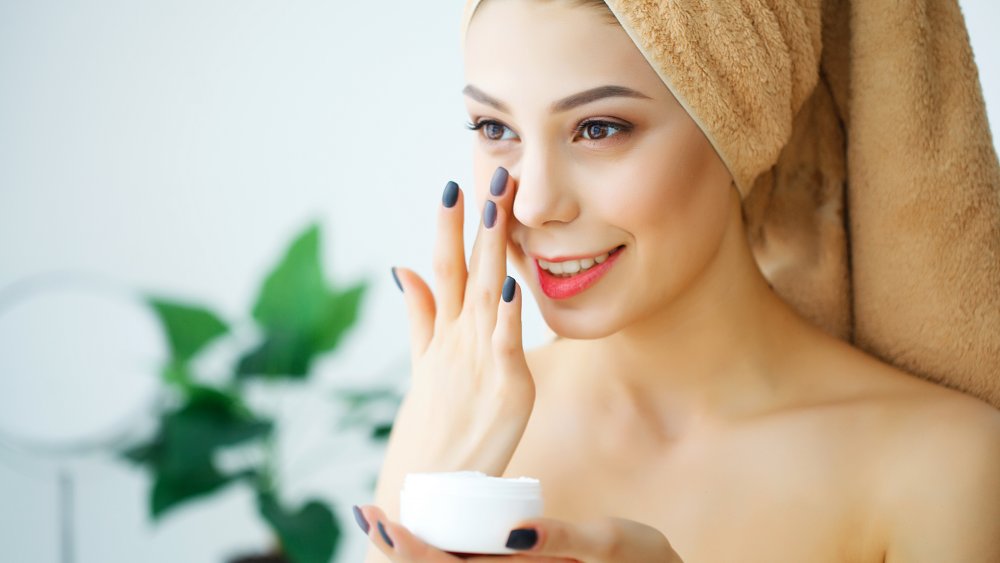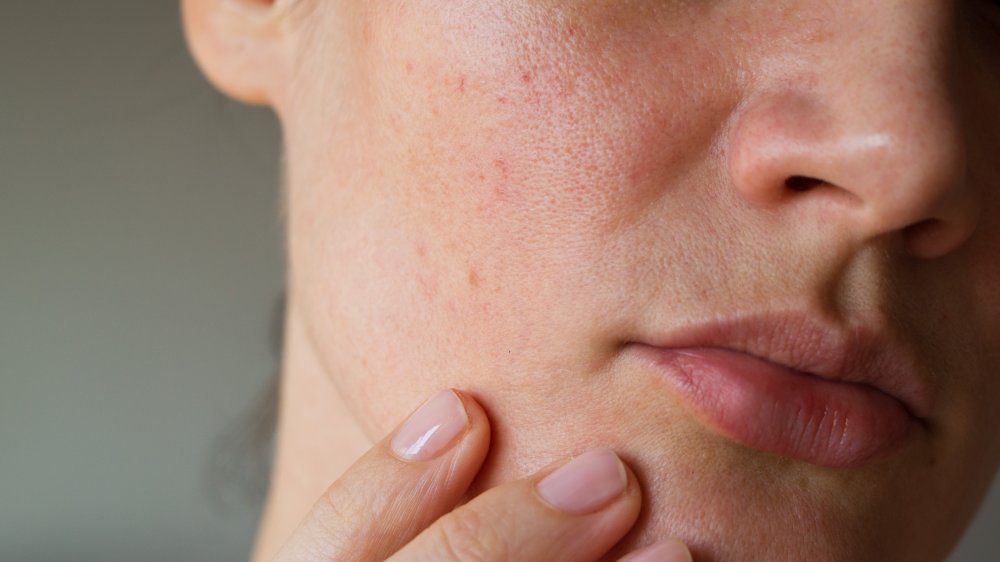Why You Should Still Be Using Moisturizer Even With Oily Skin
If you're battling with oily skin, you might be thinking that the last thing you'd want to put on your face is moisturizer. Well, we're here to tell you that not only can you use moisturizer, but you should be using it. Indeed, there's actually a big difference between moisture and oil, and depending on the product you use, adding additional moisture to your face won't actually make your skin any oilier. In fact, dehydrated skin can be a possible contributor to an oilier complexion. Skin is the body's largest organ, after all, and proper hydration is vital to keeping it healthy.
"Skin oil is the waxy substance, called sebum, that is secreted by the sebaceous glands to help maintain the barrier function of the skin. Skin hydration is the process wherein water is absorbed into the layers of the skin, known as the epidermis and dermis, to maintain its plumpness, elasticity, and resiliency," (via Verywell Health).
This is why oily skin needs moisturizer
Dermatologist at Clinique Dr. David Orentreich explains that even excessively oily skin can be dry. "This is what we refer to as the 'oil-well in the desert' syndrome," he explains on Clinique's site. "Though sebum may be plentiful, the surrounding skin may be dry. Sebum plays a role in retaining moisture in the surface skin cells; but by itself, it may not be adequate without a humectant, which helps keep water from evaporating."
And as it turns out, dehydrated skin actually has the tendency to increase oil, as the skin is attempting to overcompensate for the dryness by producing an excess. People with oily skin also tend to struggle with acne-prone skin in tandem. While there are a variety of different kinds of acne you can get, the most common kind that is found on oily skin is noninflammatory acne. Noninflammatory acne refers to clogged pores that appear as blackheads or whiteheads.
"It's the mildest type and is easy to spot," explains Healthline. "Blackheads have a dark appearance and can appear somewhat flat against the skin. Whiteheads are small skin-colored bumps."
This is to what to look for in a moisturizer
Now that you're no longer hiding from the moisturizer aisle, here are a few tips on what to look for when adding a new product to your routine. According to L'Oréal, oil-free, lightweight formulas are the way to go, as they won't clog your pores, which can be a common issue amongst people with oily-skin. These lightweight products tend to be gel-like in consistency. Keep an eye out for products that are 'non-comedogenic', as this means they have elements that focus on not clogging your pores, ultimately helping to prevent acne (via Healthline).
The American Academy of Dermatology also stresses the importance of speaking to a professional if you're unsure of what your skin needs. "If you are concerned about the amount of oil your skin is producing, or if you're struggling with blackheads or acne, make an appointment to see a board-certified dermatologist."
And the main tip we've read from dermatologists alike, regardless of skin type? Make sure you're reaching for your SPF everyday — even when it's cloudy! (via Forbes).


